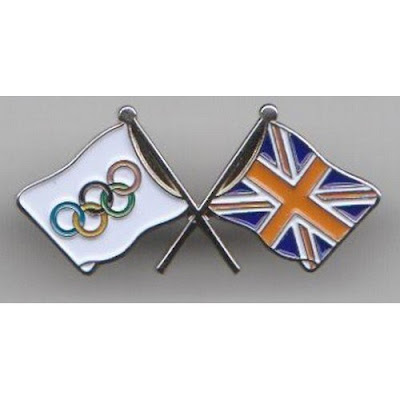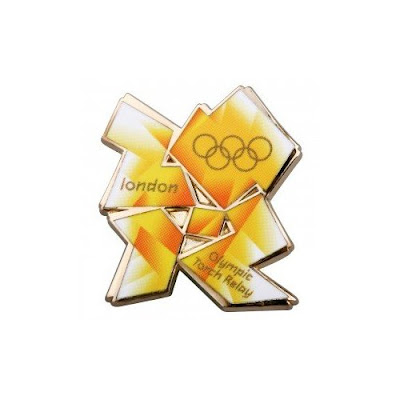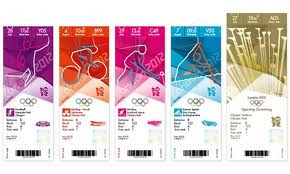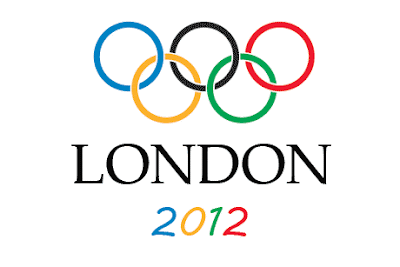London Olympic 2012 Merchandise
The Olympics Games Moment
Saturday, August 4, 2012
Friday, August 3, 2012
2012-London-Olympics-Tickets-Finally-Go-On-Sale!
Prices start from £20, probably for those seats so far back in the stands that the only action you'll manage to get a glimpse of will be that of the rather large bloke beside you chewing on his chicken and mushroom pie. The most expensive tickets are officially up for grabs for a mere £750, perhaps those seats will be encrusted with diamonds and pearls. Some so-called experts actually believe that tickets for the most exciting event, the 100 m sprint final, could eventually be shifted for up to and around £10,000, which makes that a mere grand for each second of explosiveness, or if punters are lucky, we might even get a false start.
The games itself are indeed special. They united the different continents from around the world, who gather in one area to witness the United States and China pick up a lot more gold than should be allowed. However, the chance of an outsider winning a medal will always be possible, a special moment that has the potential to make their nation proud. Imagine being an athlete, this is their World Cup, their Super Bowl, their moment to shine after years of hard work and dedication. It is for that reason, that many of us Brits gathered in Trafalgar Square to hear that our city will beat Paris to host the event. It was a joyful occasion that sparked wild celebrations and even a concert.
Although, once the dust died down and the world's economic problems became visible for the whole world to suffer, the Olympics may have seemed like a burden for some. For this Londoner, besides having to witness a rise in unemployment and dramatic inflation, transport has annoyingly become more unreliable than ever. It has gotten to the point where only one of the main lines seems to be running during the weekends. On a positive note, I did manage to ride the new improved train this morning, very spacious and clean, so no complaints apart from the fact that it moved slightly slower than statue. So far, a good return for the estimated £9billion spent getting London ready, twice the amount that was predicted at the beginning.
You don't spend billions without hoping for a gold penny or two in return. Let's just hope Team GBs Olympic hopefuls will win enough medals to satisfy those who have been affected by the changes... no pressure then. The guys are very optimistic about claiming more success than they did at Beijing. A target of more than 30 medals has been set and a maximum of 61. Our hopes are currently heavily resting on the likes of Jessica Ennis and Phillips Idowu, who are early favourites to win their events, but I'm sure all the boys and girls will give it their best shot.
The Olympics are finally becoming a reality and it is really something to smile about, which is a very surreal feeling when pictures of destruction and devastation that break your heart are constantly being transmitted halfway across the world from Japan.
2012 London Olympc - Are you ready?
Athletes, Coaches and Officials looking to head to the UK to take part in the 2012 London Olympics' test events may apply for an Olympic/Paralympic Games visit visa now and take advantage of the scheme by obtaining a visa valid for almost two years. The UK Border Agency has confirmed that the Olympic/Paralympic Games visit visa will be valid from the date of issue until 8 November 2012 (date of expiry for the Olympic accreditation card).
So what is the Olympic/Paralympic Games Visit Visa?
This type of visa is available to all potential Olympic or Paralympic Games' Family Members (including athletes, coaches, technical officials, rights holding broadcasters and sponsors) who have been identified by the London Organising Committee for the Olympic and Paralympic Games (LOCOG).
The UK Border Agency and LOCOG have worked in participation and enumerated the criteria for Olympic/Paralympic related purpose eligibility.
Non-Visa nationals will be able to make an application to the British High Commission/British Consulate posts overseas for a visa to enter the UK and take part in a specific Olympic or Paralympic Games related activity
Individuals should take note that the conditions of this visa are the same as a long-term multiple-entry visit visa i.e. the maximum period that a visa holder may remain in the UK during any given time is six months. The new visa will cost the same as a six month visit visa having multiple-entry validity.
The following category of people may apply for a visa, for example:-
• Individuals who have meetings with LOCOG;
• Individuals who will be coming to participate in UK based training camps as part of a national team;
• Individuals who will be participating in individual sport Olympic/Paralympic test events.
We strongly suggest that to avoid any possible refusal, every individual applying under this category must submit a pre-agreed template letter with their application even if their activities in the UK are Olympic or Paralympic related. Additionally, LOCOG has confirmed that it will allow only those individuals who have applied for and successfully received an official written invitation from them to apply and visit the UK for this purpose
The following activities have been accepted as Olympic or Paralympic sports. Please note that this list is exhaustive and an individual cannot apply for this type of visa based on any activity which is outside this list.
Olympics
Aquatics (Diving, Swimming, Synchronised Swimming and Water Polo), Archery, Athletics, Badminton, Basketball, Boxing, Canoe / Kayak (Sprint and Slalom), Cycling (BMX, Mountain Bike, Road and Track Cycling), Equestrian (Dressage, Eventing and Jumping), Fencing, Football, Gymnastics (Artistic, Rhythmic and Trampoline), Handball, Hockey, Judo, Modern Pentathlon, Rowing, Sailing, Shooting, Table Tennis, Taekwondo, Tennis, Triathlon, Volleyball (Beach and Indoor) and Wrestling (Greco-Roman and Freestyle).
Paralympics
Archery, Athletics, Boccia, Cycling, Equestrian, Football (5 and 7 aside), Goalball, Judo, Powerlifting, Rowing, Sailing, Shooting, Swimming, Table Tennis, Volleyball, Wheelchair Basketball, Wheelchair Fencing, Wheelchair Rugby and Wheelchair Tennis.
Can dependants join?
The Olympic/Paralympic Games visit visa is only for Games Family Members whose applications are supported by LOCOG. Unfortunately, dependants of Games Family Members are not eligible to apply for this visa. They may, however, be able to enter the UK under a different category independent of the visa holder.
Changing immigration status from within the UK.
It is worth noting that it is not possible to switch (change immigration status from within the UK) from the Olympic/Paralympic Games visit visa to another visa category.
2012 London Olympic Games Controversy And Economic Realities
It seems as always the 2012 Olympic Games which will be hosted in London are not without a little controversy. This should be expected by any host nation staging such a massive event with such profound historical implications. The other day I was discussing all this with a Londoner, and a well known controversial blogger, one who refuses to go the way of the quiet and content mass media reporters and commentators.
Yes, I speak of Josh Aggars who agreed to be interviewed by me. When I asked Josh about one of the most controversial topics of London today, he writes; "OK well why don't we start with something topical like the Olympics and see where we get to. I was thinking a title like "Hosting the Olympics is of no inherent value to the host city". Discuss!"
Ah Ha! Just as expected Aggars once again refuses to sit tight and stick to the easy controversies such as the Anti-Average Mustard Committee, who requires Grey Poupon on their French Deli Sandwiches, and refuses to accept anything but the highest grade mustard. No, Josh tells it like he is and challenges the status quo with all the chaos and controversy they themselves so dutifully love to sweep under their carpets. Okay and to Joshua Aggars comments I say;
Well, I wouldn't say there is "NO" inherent value, but I would say generally speaking (historically) it has been overstated by the hosting country's local economic development associations, politicians, governments, tourist boards, and insiders using all sorts of propaganda, PR, publicity, and promotion. Also, the drawbacks have also been understated, as well as the unintended consequences; security costs, risks of terrorist event, outbreaks, and devaluation of property after the games.
Further, I'd like to say I am very PRO-Olympics! I think it brings the world together, unites humans, celebrates the best "we" can be together, and it prevents future conflicts by coming together in world-wide games. This opens communication and it allows all of us to experience triumph over adversity and thus, strengthens the whole of world society as well as each individual human. It's a good thing, but that doesn't mean the hosting country will reap the rewards of the billions in outlay for the Olympic Village, or that the tourism will pay for it all and put their city or nation back on the world-wide map.
Often countries and cities have everything to lose and little to gain especially in the short term. Over the long-haul, they must deal with the real estate's economic fallout issues of those properties. I mean in reality what are they really good for other than the Olympics? Now then, it seems that the National pride, ego, and prestige even if temporary does inspire countries to bid on having the right to host the Olympic Games.
We should continue to support the Olympic Games because it highlights sportsmanship, perseverance, strength of character, commitment, competition, will, and human intent - and all that is good about human beings. We should double the number of contests, and have the Olympic Games every two-years in my opinon. Why, because we have more countries participating and more athletes - and it will keep us closer, as our world is forced to recognize our different cultures, and address the conflicts or politics, economics, human rights, resources, religion, etc. I thus, remain PRO-Olympics, we all should.
The Olympic Games should be looked at as an investment in peace, humanity, and history, not just as a piece of real estate or an economic fiasco/bonanza. There is just more to it than that. But you know what - Josh Aggars brings up a very important point, and I knew he would. So, please consider all this.
2012 and all - An Olympic Games Bid
The day was 6th July 2005. Raffles City Convention Centre in Singapore was the venue. The special occasion was the 117th Ordinary Session of the IOC (International Olympic Committee). The purpose was to meet and vote to pick the city to host the XXX modern Summer Olympic Games.
At first, there had been nine cities fighting to hold the 2012 Olympic Games. On the 18th May 2004, these were reduced to five main candidates. Havana, Istanbul, Leipzig and Rio de Janeiro had been ineffectual in their endeavors to influence on technical evaluation and were purged from the continuing procedure.
Five names were put forward to the concluding voting mechanism. The cities chosen for the crucial verdict were London, Madrid, Moscow, New York and Paris. Of these, Paris carried the influence of being the city most likely.
So, the fateful day in 2005 eventually arrived and the IOC met in Singapore to agree a decision that would carry with it colossal budgetary consequences.
The course of action was basic. Each of 104 suitable IOC attendees would take part in a consecutively held number of secret votes. After each ballot, if no candidate city had earned an conclusive majority of the votes cast, the city with the fewest votes would quit and a subsequent ballot be held.
After some anxious rounds of voting, the three topmost challengers emerged from the five short-listed hopefuls. London, Madrid and Paris. Moscow had fallen at the 1st hurdle and New York was eliminated after the 2nd ballot.
Contrary to the fact that Madrid and London had both polled somewhat more votes than Paris in the first two ballots, the French capital was still deemed by many as the favourite to gain the eventual prize. Due to the vagaries of the voting conduct of some IOC delegates, at the next to last voting stage, Madrid, which had lead the race at the 2nd ballot with 32 votes, was stopped polling just 31 votes. This left London confronting Paris in the concluding vote.
The widely held assumption of the press and professional soothsayers was that Paris "had it in the bag".
London's bid had previously been evaluated as having many positive elements in reports drawn up by the IOC in 2004 and 2005. However, the general opinion within the various IOC evaluation committees was that Paris held the advantage over its cross-channel opponent.
Heritage also seemed to be against Britain. Prior bids by Birmingham (1992) and twice by Manchester (1996 and 2000) had all failed rather poorly. Whereas, Paris had contended for the 1992 Summer Olympics and then again in 2008, when it came third behind hot favourite Beijing. The general emotion in the run up to the 117th IOC Session was that Paris was owed a triumphant bid.
The eventual judgement is now history. Celebrations by the GB team within the Convention Centre were more than matched by untamed cries of joy from a big crowd viewing the proceedings live on giant screens constructed in Trafalgar Square, Central London. The whereabouts of the home crowd was, possibly, predictive - the Battle of Trafalgar being possibly the most well known of British triumphs over their long time adversary.
So, London became the first city to have the privilege of hosting the modern Summer Olympic Games thrice, having had the privilege in the summer's of 1908 and 1948.
But, what will be the eventual financial burden to London and its taxpayers?
But, when the Games are seen in the light of history one question will surely remain: Who will end up paying for the 2012 London Olympic Games costs?
Can the British capital do the trick the unusual feat of hosting a modern Olympics and realistically make a profit from it? Or, will a bequest of debt persist long after the visual athletic glories, that surely await us in the Fall of 2012?
At first, there had been nine cities fighting to hold the 2012 Olympic Games. On the 18th May 2004, these were reduced to five main candidates. Havana, Istanbul, Leipzig and Rio de Janeiro had been ineffectual in their endeavors to influence on technical evaluation and were purged from the continuing procedure.
Five names were put forward to the concluding voting mechanism. The cities chosen for the crucial verdict were London, Madrid, Moscow, New York and Paris. Of these, Paris carried the influence of being the city most likely.
So, the fateful day in 2005 eventually arrived and the IOC met in Singapore to agree a decision that would carry with it colossal budgetary consequences.
The course of action was basic. Each of 104 suitable IOC attendees would take part in a consecutively held number of secret votes. After each ballot, if no candidate city had earned an conclusive majority of the votes cast, the city with the fewest votes would quit and a subsequent ballot be held.
After some anxious rounds of voting, the three topmost challengers emerged from the five short-listed hopefuls. London, Madrid and Paris. Moscow had fallen at the 1st hurdle and New York was eliminated after the 2nd ballot.
Contrary to the fact that Madrid and London had both polled somewhat more votes than Paris in the first two ballots, the French capital was still deemed by many as the favourite to gain the eventual prize. Due to the vagaries of the voting conduct of some IOC delegates, at the next to last voting stage, Madrid, which had lead the race at the 2nd ballot with 32 votes, was stopped polling just 31 votes. This left London confronting Paris in the concluding vote.
The widely held assumption of the press and professional soothsayers was that Paris "had it in the bag".
London's bid had previously been evaluated as having many positive elements in reports drawn up by the IOC in 2004 and 2005. However, the general opinion within the various IOC evaluation committees was that Paris held the advantage over its cross-channel opponent.
Heritage also seemed to be against Britain. Prior bids by Birmingham (1992) and twice by Manchester (1996 and 2000) had all failed rather poorly. Whereas, Paris had contended for the 1992 Summer Olympics and then again in 2008, when it came third behind hot favourite Beijing. The general emotion in the run up to the 117th IOC Session was that Paris was owed a triumphant bid.
The eventual judgement is now history. Celebrations by the GB team within the Convention Centre were more than matched by untamed cries of joy from a big crowd viewing the proceedings live on giant screens constructed in Trafalgar Square, Central London. The whereabouts of the home crowd was, possibly, predictive - the Battle of Trafalgar being possibly the most well known of British triumphs over their long time adversary.
So, London became the first city to have the privilege of hosting the modern Summer Olympic Games thrice, having had the privilege in the summer's of 1908 and 1948.
But, what will be the eventual financial burden to London and its taxpayers?
But, when the Games are seen in the light of history one question will surely remain: Who will end up paying for the 2012 London Olympic Games costs?
Can the British capital do the trick the unusual feat of hosting a modern Olympics and realistically make a profit from it? Or, will a bequest of debt persist long after the visual athletic glories, that surely await us in the Fall of 2012?
Subscribe to:
Posts (Atom)










